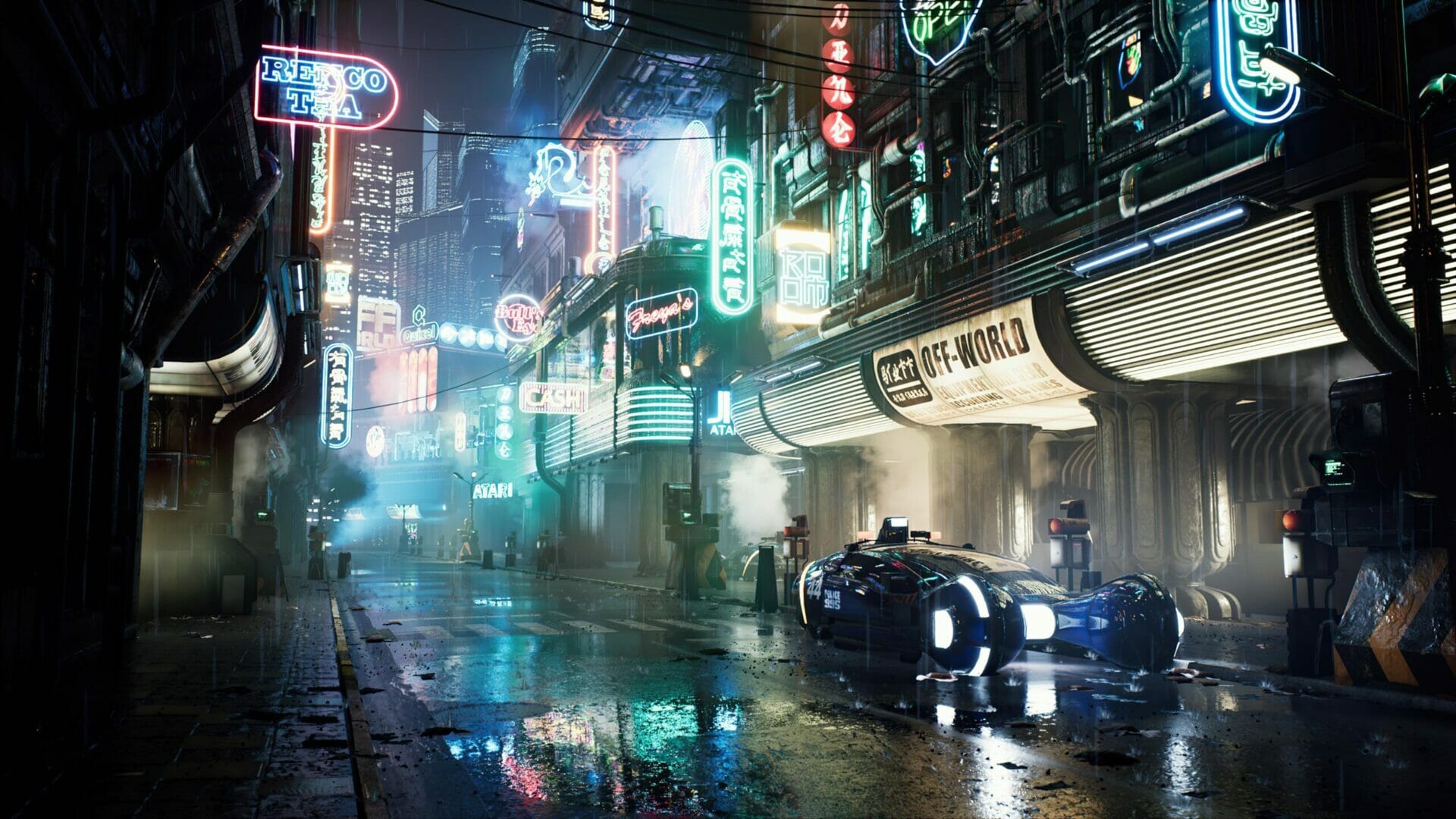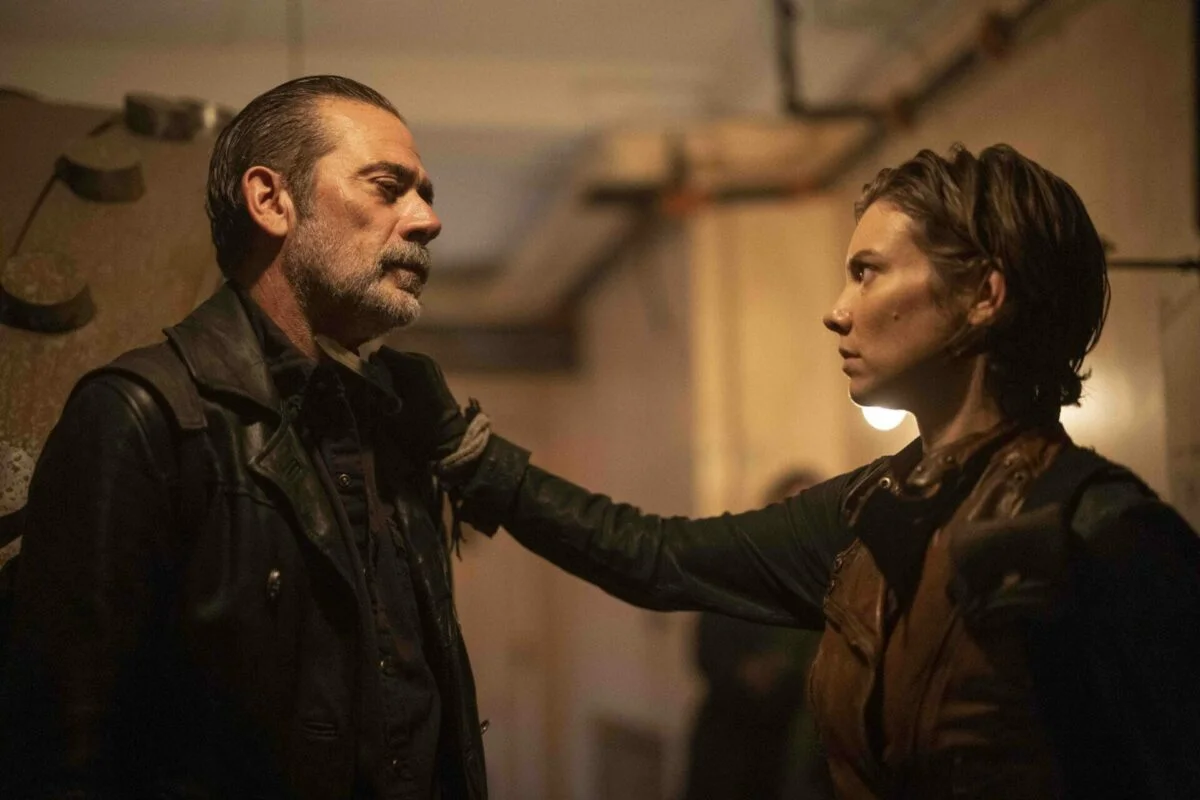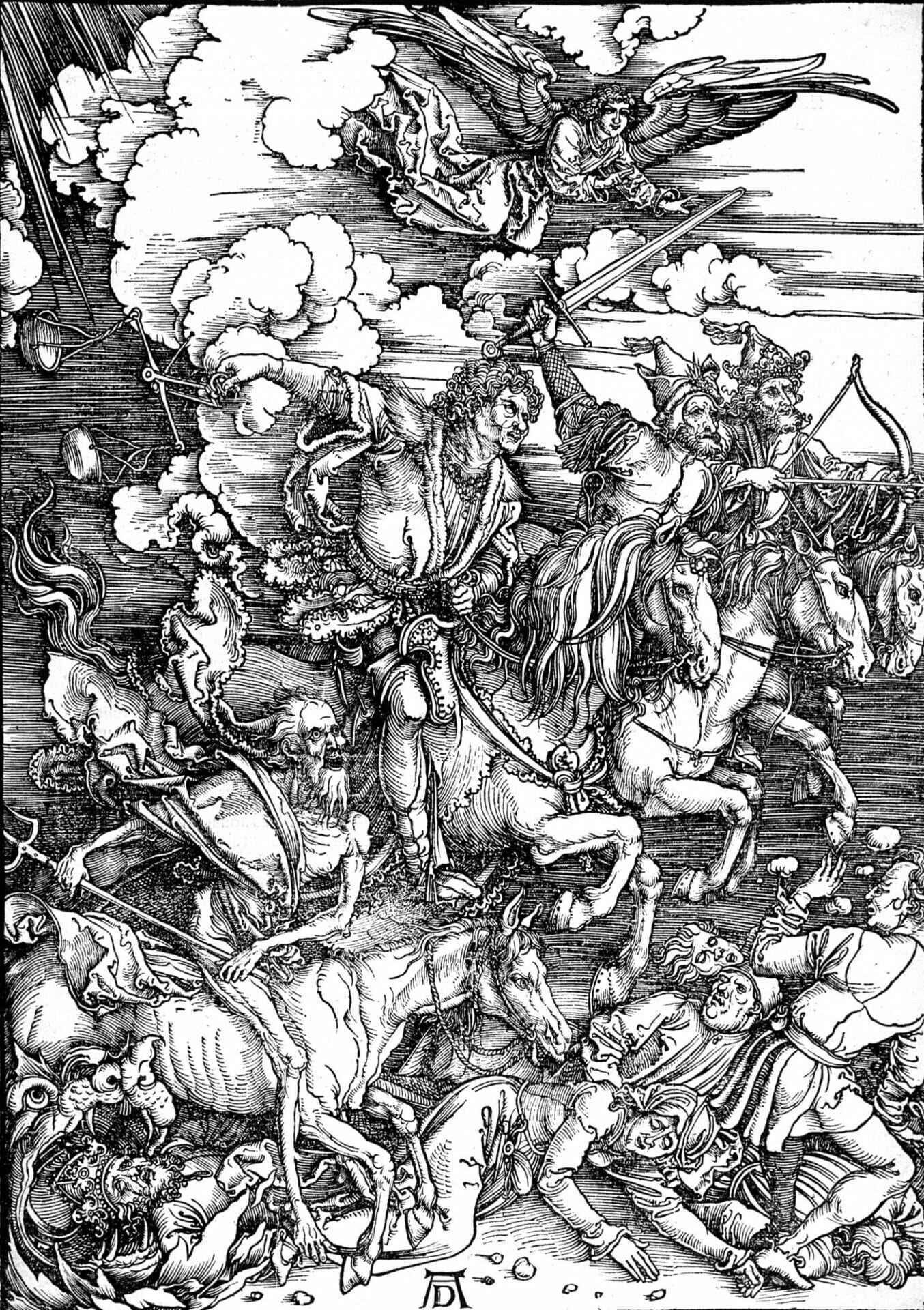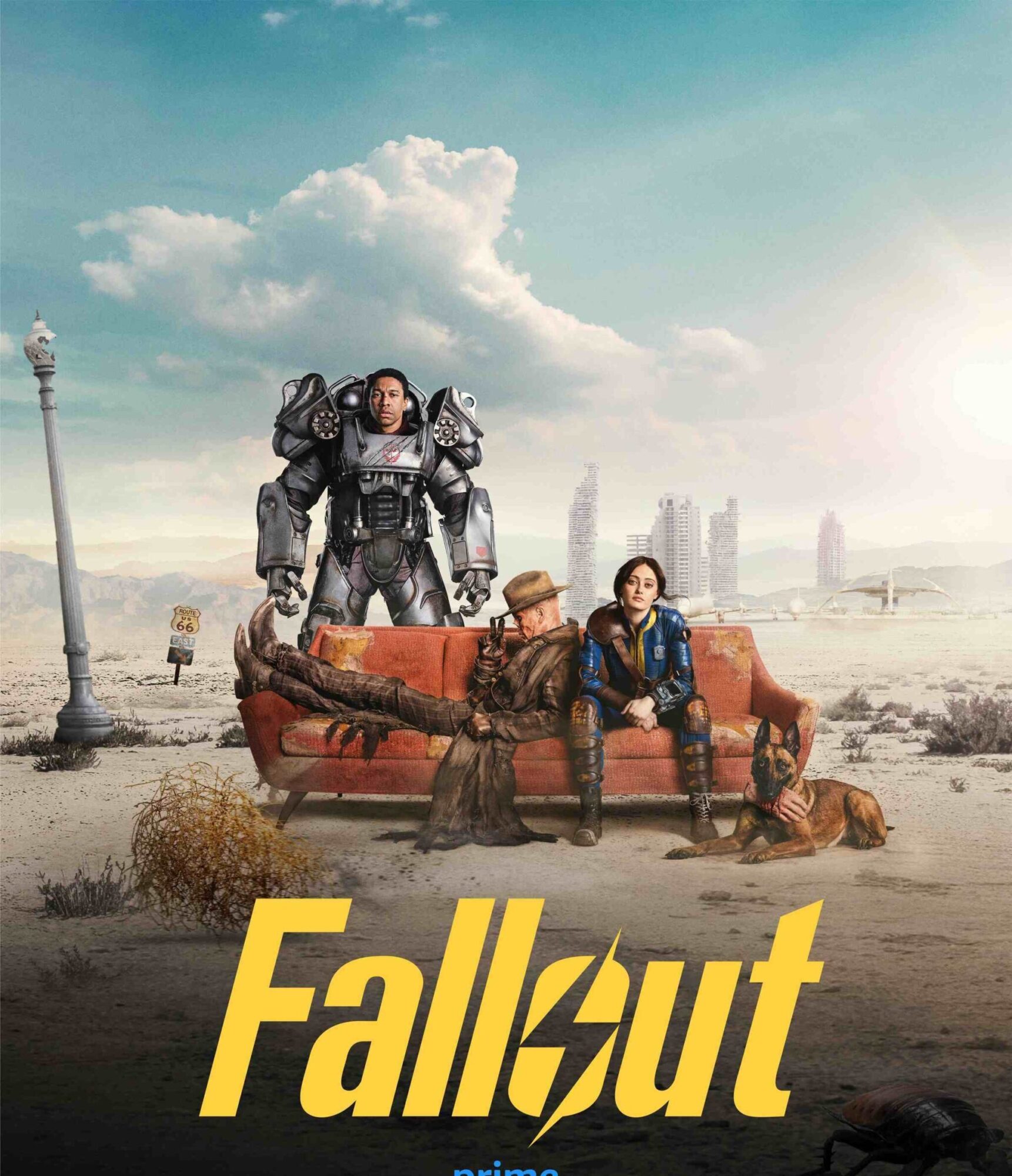
Fallout TV Show Review | Satire and Survival in the Chaos of the New World
Seasons
Runtime
By
A world that stopped in the 1950s, but where technology reached incredible levels; where nuclear paranoia transformed everyday life into a dystopia. Western actors who become symbols of the end of the world, while a future shaped by capitalism launches atomic bombs as if they were products on sale.
This is the scenario of Fallout, the post-apocalyptic video game that has been showing us the consequences of human madness for over 25 years. Created by Tim Cain and developed by Bethesda Softworks, Fallout has inspired not only a generation of gamers, but also a TV show.
Created by Geneva Robertson-Dworet and Graham Wagner and produced by Jonathan Nolan and Lisa Joy, with the collaboration of Bethesda itself and the involvement of its game director Todd Howard as executive producer, the show arrives on Amazon Prime in 2024. It takes place chronologically after the events of the games, keeping alive the essence of the post-nuclear world created by the franchise.
Between Vaults and the Wasteland
Fallout takes place two centuries after the devastating nuclear war of 2077, which destroyed the world as we know it. Set in 2296, the plot mainly follows three protagonists who explore a devastated California, once a symbol of the 1950s American dream, now a post-apocalyptic landscape.
Among these stand out Lucy MacLean (Ella Purnell), born and raised inside a fallout shelter, the Vault, and Maximus (Aaron Moten), an aspiring warrior of the Brotherhood of Steel, a military organization that attempts to maintain order in the Wasteland.
To save those dear to her, Lucy abandons the safety of the Vault to face the brutal reality of a fragmented and dangerous society.
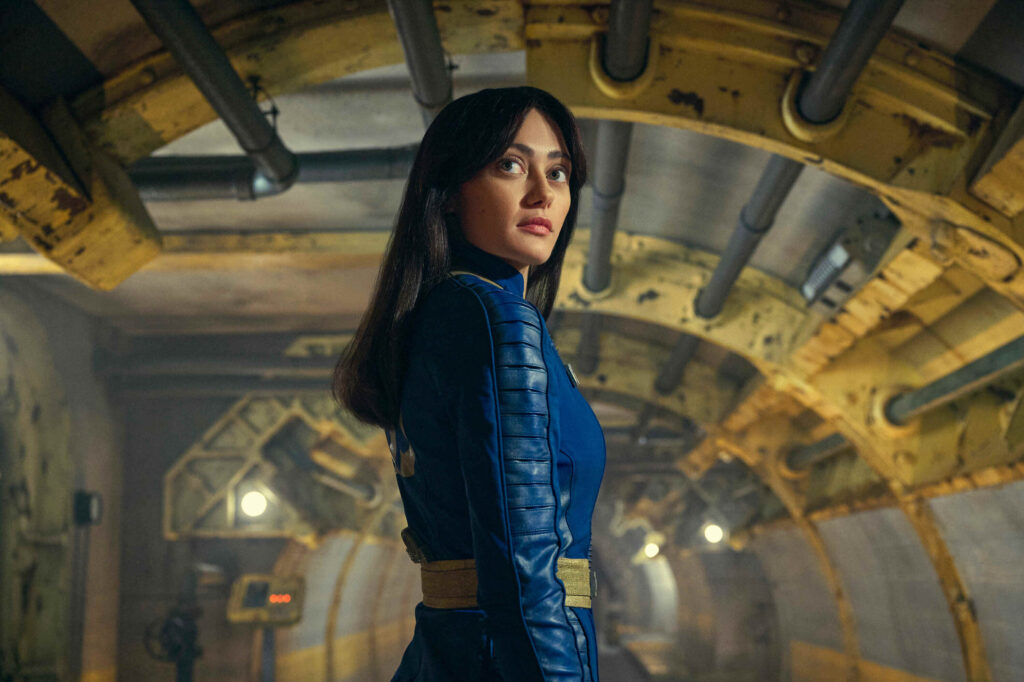
Maximus, an awkward and insecure military man, seeks his place within the Brotherhood, but his fearful nature makes him a character who often acts out of instinct and naivety.
At the same time, Walton Goggins plays Cooper Howard, a Hollywood western star in the 1950s who, transformed into a mutant Ghoul after the apocalypse, is now searching for a mysterious artifact disputed by multiple factions. His evolution from glamor actor to radioactive monster embodies the impact of war and delivers one of the most charismatic performances in the show.
Between devastated scenarios and mutated creatures, Fallout brilliantly explores the contrast between the ideal pre-apocalyptic world and the cruel post-nuclear reality.
Social Criticism in Fallout‘s Retrofuturism
In the world of Fallout, social and political themes emerge through a future devastated by the nuclear war, reflecting very current issues. At the center of the critique is the degeneration of the American dream and the madness of the technological and military race, elements similar to those in works such as George Orwell‘s 1984, where authoritarian control and manipulation of information shape a dystopian society. Likewise, the Vault-Tec corporation, which promises salvation from nuclear bombing, embodies the corruption of capitalism.
The Brotherhood of Steel embodies militarism and unbridled authoritarianism. As in Mad Max: Fury Road, where resources become the fulcrum of power, the Brotherhood also seeks to maintain control through technology, seen as the means to restore order in a ruined world. However, the figure of Maximus, who initially sees the Brotherhood as a path to justice, reveals the hypocrisy within the organization: power is obtained not through meritocracy, but through opportunism and violence.
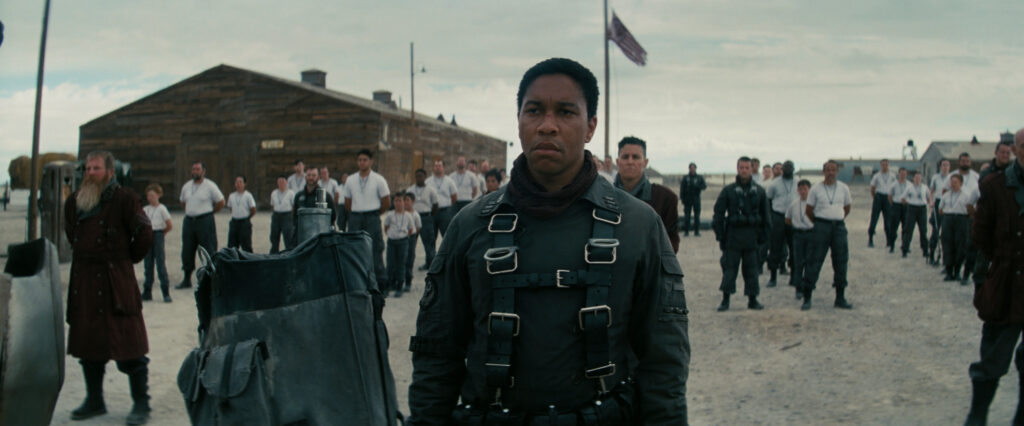
The criticism of capitalism in Fallout also emerges in the flashbacks of the pre-war life of Cooper Howard, the actor who unwillingly becomes the face of Vault-Tec. His role reflects the manipulation of advertising and the superficiality of the entertainment industry, similar to the themes explored by V for Vendetta, in which state propaganda is used to control and manipulate the masses. Cooper, before the bombs fall, is the typical man who seeks success through the American dream: a former soldier, he now lives the good life in a nice house with his family. That dream, however, is soon shattered.
Progress is therefore not always a sign of improvement, rather, it leads to dehumanization: a theme dear to Nolan and Joy, which is in fact found in their other works such as Westworld. In Fallout all this leads to a world in which individualism is not heroic, but selfish, a consequence of imperialist policies and environmental destruction. And then, as in Cormac McCarthy‘s The Road, survival becomes a question of morality, and the protagonists must deal with a world in which common sense and humanity are often rare commodities.
The Charm of the Past in the Future
In a mix of satire, black humor and social reflection, Fallout alternates violent moments with the colorful aesthetics of the 50s. In the post-apocalyptic world, however, a strong reference to the western emerges. The desolate expanses and solitary characters, typical of films such as High Noon or A Fistful of Dollars, recall the frontier atmosphere, where the law of the strongest reigns. However, Fallout subverts the genre’s classic tropes: here the frontier is not a place of opportunity, but of desperation. As in Sergio Leone‘s westerns, the protagonists are not heroes, but ambiguous figures who are only trying to survive. This stylistic reference to the past underlines how, even in a devastated future, humanity tends to fall back on family structures.
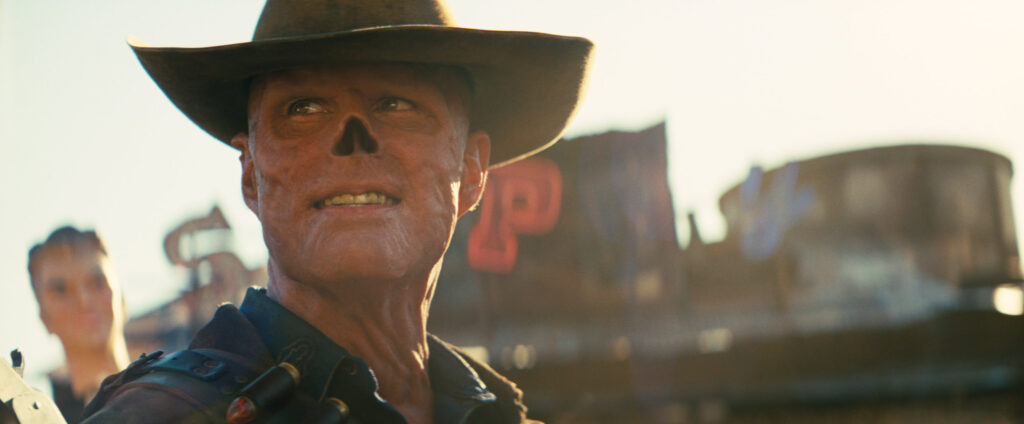
In parallel, despite the dark moments and violent situations, the show maintains a constant irony, with surreal moments full of black humor and comic cameos, such as the presence of Matt Berry (What We Do in the Shadows) both as a character and as the voice of a domestic robot that, after the apocalypse, becomes an ‘organs extractor’ – always maintaining the aplomb of a butler. Fallout therefore blends different tones and styles without betraying its spirit.
A Respectful Adaptation
With Fallout, Geneva Robertson-Dworet and Graham Wagner have found the delicate balance between faithfulness to the source material and creating a standalone narrative.
The show manages to attract both long-time fans of the series and those who have never played video games, as has happened with other TV shows based on the video game world, such as The Last of Us.
Furthermore, while taking inspiration from the video game, especially from Chapters 3 and 4, the TV show adds a ‘plus’ to the franchise: the events are a sequel to the original source. It is a way of expanding the world, to also interest gamers who, by necessity, might already know everything about the plot. Arcane, the TV show based on the world of League of Legends, has done the same thing, making the television product a prequel to the video game one.
Some changes were necessary, such as slightly changing the appearance of the protagonist Ghoul to make him even ‘hot’, as stated by the show’s costume designer herself, Amy Westcott, but in the end Fallout is one of those examples in which the transposition from videogame to television or cinema, which often had unfortunate results, can really happen, especially when there is passion for its source.
Tag
Buy a ☕ for Hypercritic







